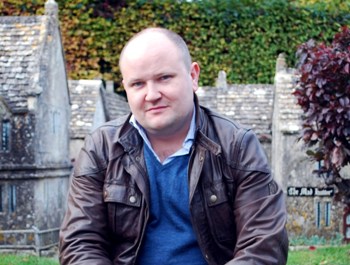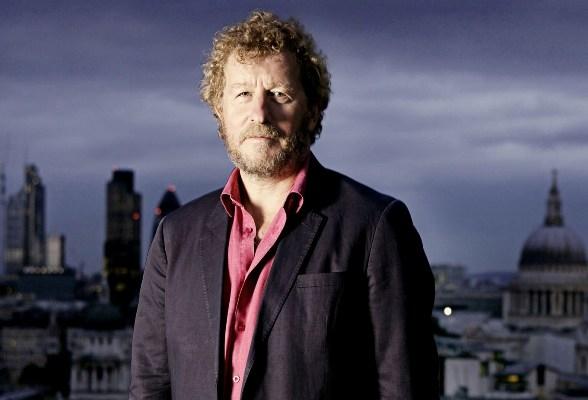London’s literary world must be as small as it was in the 18th century. Or at least that’s the impression you get when you watch book programmes on the BBC, for it’s the same old characters that keep cropping up. Martin Amis, Will Self, Jenny Uglow – like minor players in a picaresque novel in which the novel itself is the hero devouring new experiences, you’re sure to encounter at least two of their like in quick rotation, ubiquitous with their insights and wisdom.
And so it was with BBC Two’s Faulks on Fiction and BBC Four’s Birth of the British Novel. The first aired on Saturday prime time, the second last night and Amis and Uglow were on both – in fact, each could be found expressing similar observations on Henry Fielding’s Tom Jones on respective programmes: Uglow with novelist Sebastian Faulks, Amis with author, critic and TV newcomer Henry Hitchings.
But if there were overlaps, there were also marked differences, for if Faulks on Fiction could be described as a York Notes GCSE primer – painting with such broad brush strokes that each statement uttered forth by Faulks occupied expansive moments of air time that was otherwise engaged with film and television adaptations of the novels in question – then Birth of the British Novel might, indeed, be described as your degree-level foundation course, bristling and dense with ideas and finely tuned critique. You could tell the difference in depth and breadth by word count alone.
So you might have found it odd that Faulks’s opening gambit was that Britain was great with words and lousy with pictures, since, through a generous montage of vintage BBC costume dramas, it was mostly pictures we got. That said, when they eventually came, there were a few succinct and sharp observations that are worth quoting. Jim Dixon, the “hero” in Kingsley Amis’s Lucky Jim, was brilliantly described as “middle England’s answer to Jean-Paul Sartre”, a statement that contained a whole weighty discourse about the two nations separated by a Channel. And here was Martin Amis’s observation regarding the creation of his monstrously self-centred anti-hero, John Self, in Money: “The novel wouldn’t have worked unless we all felt that we each had one per cent of John Self in us”, he said, before adding, with his usual languid air, "and I felt I had about three per cent.” But all these came towards the end of this opening episode, which was a shame.
Faulks had been discussing the Hero (the following three weeks will see the Lover, the Snob and the Villain explored in British fiction) and he had begun with Robinson Crusoe, taking in Tom Jones, Becky Sharp and Sherlock Holmes - “the last fictional hero to take on the world and win”. It ended with 1984's Winston Smith and Self. Ranging across three centuries it had examined the hero’s terminal decline, a decline for which you might blame the devastation and psychic shock of the First World War and the realisation that none of us are ultimately authors of our own destinies. It focused on characters, not authors, hoping to take us back to how we experience the novel first-hand, and away from how we critically appraise the novel as works of art at one stage removed from our visceral responses.
 But Hitchings (pictured right) took the more usual, contextual route, exploring the author and his times. And because, unlike Faulks’s broad brush, he used a much finer one to delineate the real-life characters in his 18th-century line-up, he offered up a picture complete with compelling detail and in variegated and vivacious colours. Our authors were the new and rather precariously situated middle classes and their voices spoke of their times and motivations. Defoe had tried his hand in all sorts of ventures, among them diplomacy and spying, and was put in the stocks and imprisoned for his political activities; Fielding was a magistrate, a social reformer and founder of the Bow Street Runners, while the misanthropic, depressive Swift, author of the savagely satirical Gulliver’s Travels - the most reproduced novel in history - a failed political mover and shaker with the Tory Party and later Dean of St Patrick's Cathedral, Dublin.
But Hitchings (pictured right) took the more usual, contextual route, exploring the author and his times. And because, unlike Faulks’s broad brush, he used a much finer one to delineate the real-life characters in his 18th-century line-up, he offered up a picture complete with compelling detail and in variegated and vivacious colours. Our authors were the new and rather precariously situated middle classes and their voices spoke of their times and motivations. Defoe had tried his hand in all sorts of ventures, among them diplomacy and spying, and was put in the stocks and imprisoned for his political activities; Fielding was a magistrate, a social reformer and founder of the Bow Street Runners, while the misanthropic, depressive Swift, author of the savagely satirical Gulliver’s Travels - the most reproduced novel in history - a failed political mover and shaker with the Tory Party and later Dean of St Patrick's Cathedral, Dublin.
Unlike the synopsis-heavy Faulks on Fiction, it was rather assumed that viewers of Birth of the British Novel would at least be familiar with the broad narrative outlines of the English language's most groundbreaking works of prose fiction. Of Defoe’s Robinson Crusoe, we were offered this nugget by way of an introduction: “Take away the island setting and we’re left with a manual for self-sufficiency and gain – one that chimes with the burgeoning economic values of 18th-century Britain.” Yes. Genuinely illuminating, refreshingly unpatronising.















Add comment